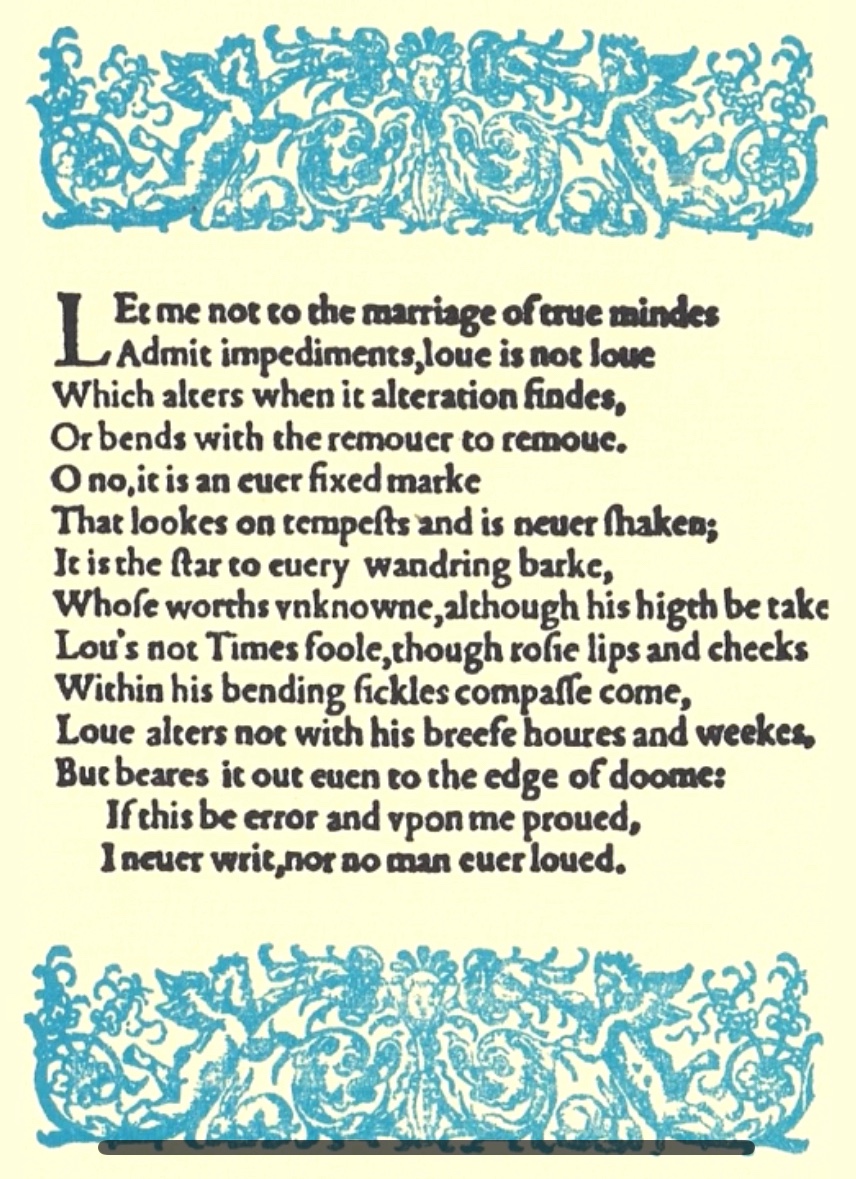Today, April 23, is the birthday (and death day) of William Shakespeare (April 23, 1564 – April 23, 1616). It is also the birthday of my friends and colleagues Pastor David Roschke and Pastor Pedro Bullón of the Lutheran Church in Perú).
In celebration of the day, I’m posting my favorite sonnet (“little song”). This comes close to I Corinthians 13 for me.
Sonnet 116
Let me not to the marriage of true minds
Admit impediments; love is not love
Which alters when it alteration finds,
Or bends with the remover to remove.
O no, it is an ever-fixèd mark
That looks on tempests and is never shaken;
It is the star to every wand’ring bark
Whose worth’s unknown, although his height be taken.
Love’s not time’s fool, though rosy lips and cheeks
Within his bending sickle’s compass come.
Love alters not with his brief hours and weeks,
But bears it out even to the edge of doom:
If this be error and upon me proved,
I never writ, nor no man ever loved.

Love is a fixed mark that does not waver, even when it encounters wavering. The highest form of love is an undaunted commitment to the beloved, even if it is not returned. Even living your enemies Jesus would say.
Interesting observation: obviously, the even and odd stanzas are meant to rhyme his retune scheme in the sonnets was:
- ABAB
- CDCD
- EFEF
- GG
English pronunciation, however, has changed since 1590, so notice, for Shakespeare, lines two and four rhymed.
- Love rhymed with remove.
- Come rhymed with doom.
- Proved rhymed with loved.
HERE is one suggestion on how it might have been read and pronounced in the Late Medieval Period.
Shakespeare is undoubtedly the most influential writer of the English language. Hamlet, Romeo and Juliet, King Lear, Othello, 39 plays, 154 sonnets. Shakespeare codified English as Luther did with German. He is credited with introducing 1700 new words into the English language. Words that did not exist prior to his writing, such as, bittersweet, bedroom, downstairs, lonely, undress, and worthless.

